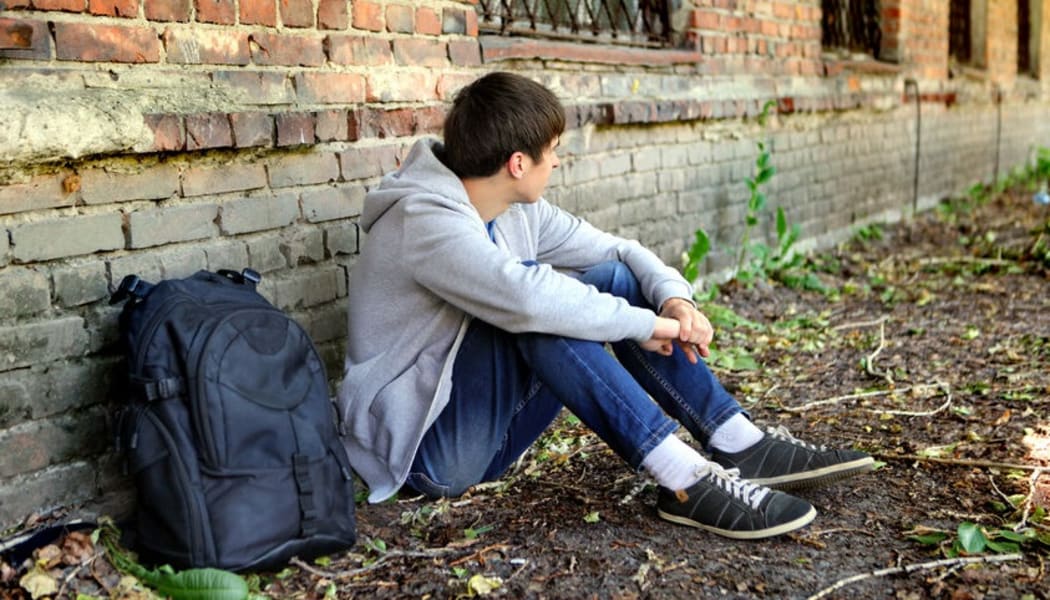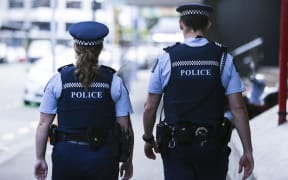By Shaun Robinson*
Opinion - My heart goes out to the family and friends of the 668 people believed to have died by suicide in 2017/18. At the Mental Health Foundation, we knew some of those people. I know others who attempted suicide. Once, years ago, that was me. This is a very human and a very national tragedy.

(stock image) Photo: sabphoto/123RF
The number is the highest it has ever been and has gone up four years in a row. That follows a decade of stubbornly high numbers of suicides. It's the leading cause of death for young people in New Zealand. While suicide affects every group in our society it falls most heavily on young Māori men.
As a country, we need action. We need MORE action, because in many ways, we already know the answers to how we turn these numbers around.
Each year, literally thousands of people go through times of feeling seriously suicidal and recover. Hundreds of unsung heroes in the community are doing fantastic work to prevent suicide every day. Building networks of support for people who are struggling, connecting young people to their culture and community, providing rapid response to vulnerable situations, dedicated mental health workers … the list goes on.
So, we have many of the answers, but what's missing are the resources to invest in preventing suicide and learning from what is working.
The causes of suicide are many and varied. Childhood trauma, major life events like relationship break-ups or bereavement, financial problems, excessive stress, feeling like you don't belong and are disconnected from family or community, physical and mental illness; these can all play a part.
We must face the fact that these personal situations are often driven by the way we treat each other and some big thorny social problems - family violence, child abuse, poverty, the housing crisis, bullying in schools and workplaces, homophobia, racism and the aftermath of colonisation. We can't turn suicide trends around by just focusing on individuals, we must double down on addressing the social drivers.
It's not only about stopping negatives - we have to create more positives. There are lifestyle and life skill approaches that build positive mental health and the ability to manage life's stressors, and also help people cope and manage the really dark times.
There are examples of this working in schools and communities right now - look at Sparklers, Farmstrong, All Right?, Headfirst. We need more of these.
Of course, people need more and better support services. While thousands do get help, there are far too many gaps. People need support early, so they don't reach a point of crisis, and if they do then those crisis services must be there, ready to help people to recover.
Let's not forget that you and I are the first line of support. When I was in a dark space, I reached out to friends and family or they reached out to me. We need more encouragement to be there for each other and more training like LifeKeepers to give people the confidence and skills to help their communities.
The one common theme in suicide is hope, or lack of hope.
Hope is not about Pollyanna or ignoring the tragedy - it's about recognising and listening to what works and building on it. The Mental Health Inquiry has been doing a lot of listening.
I'm counting the days until we see the government respond to the Inquiry and take leadership to act. In the 1990s New Zealand had a plan to prevent suicide and the numbers started to go down. We did it then, we can do it again.
* Shaun Robinson is chief executive at the Mental Health Foundation
Where to get help:
If it is an emergency and you feel like you or someone else is at risk, call 111.
Need to Talk? Free call or text 1737 any time to speak to a trained counsellor, for any reason.
Lifeline: 0800 543 354 or text HELP to 4357
Suicide Crisis Helpline: 0508 828 865 / 0508 TAUTOKO (24/7). This is a service for people who may be thinking about suicide, or those who are concerned about family or friends.
Depression Helpline: 0800 111 757 (24/7)
Samaritans: 0800 726 666 (24/7)
Youthline: 0800 376 633 (24/7) or free text 234 (8am-12am), or email talk@youthline.co.nz
What's Up: online chat (7pm-10pm) or 0800 WHATSUP / 0800 9428 787 children's helpline (1pm-10pm weekdays, 3pm-10pm weekends)
Kidsline (ages 5-18): 0800 543 754 (24/7)
Rural Support Trust Helpline: 0800 787 254
Healthline: 0800 611 116
Rainbow Youth: (09) 376 4155



